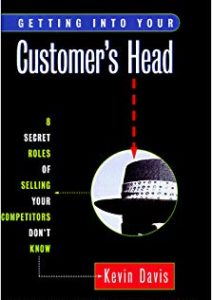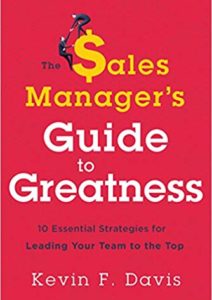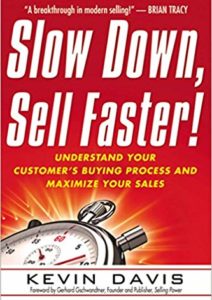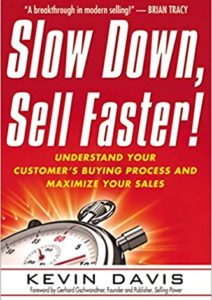Great sales managers are hard to come by. Sales managers have a very important job in the sales world. They manage a team of sales reps. They serve as a coach and a trainer. They monitor data and statistics, and a variety of other things. It can be challenging to know which aspect of sales management to focus on when trying to improve from an okay sales manager to a great sales manager. Kevin Davis, author of the Sales Manager’s Guide to Greatness, has some concrete actions that you can take as a sales manager to improve. John Golden hosts this expert sales interview.
In this expert sales interview, explore sales management improvement tips such as:
- The first steps to improving as a sales manager
- Which sales reps to train
- The best time to train
Sales Manager Training: Step One
Davis recommends that the first thing a sales manager does when trying to improve is to consider themselves and their actions. Many sales managers think that the problems are coming from the sales team. But, perhaps a better way of finding a solution is to think about what changes the sales manager themselves can make. One activity that Davis does when training sales managers is to ask them to create a report card for each of the reps on their team. At the end of the activity, he asks, “whose report card is this really?” The answer is that it’s the sales managers report card. “Your success is measured on your ability to improve the performance of your people,” said Davis. “If you’re not increasing their performance, perhaps you need to make changes to your management.”
Who to Train:
Often, a sales manager will help the sales reps who ask for extra assistance or the rep that is working on the largest deal. However, Davis argues that the people on the team who are the least needy of you are the ones that need the coaching time the most. “They’re the ones who are often the B players. They may not be working on the largest deals or coming to you for advice, but they’re still the B players. With some coaching on your part, you could develop them into A players very quickly,” said Davis.
When to Train:
Sales people will often not look for coaching. Even if a sales manager is open and available to coach their reps, a lot of salespeople are reluctant to take the manager up on that. To break this habit, sales managers have to provide better, proactive coaching. Davis uses the analogy of the game of golf. At the end of the game, you get a scorecard. If you take the scorecard to your trainer after the game is finished, they might have some tips for you, but they can’t coach appropriately on the aftermath of the game. Unless they observe the swings and the different techniques, the coach’s advice is coming too late, and they don’t see the whole picture. As a sales manager, it’s crucial to train proactively by helping your customers while they are selling. Evaluating them after the sales have already been made is too late.
About Our Host
John is the Amazon bestselling author of Winning the Battle for Sales: Lessons on Closing Every Deal from the World’s Greatest Military Victories and Social Upheaval: How to Win at Social Selling. A globally acknowledged Sales & Marketing thought leader, speaker, and strategist. He is CSMO at Pipeliner CRM. In his spare time, John is an avid Martial Artist.
Pipeliner CRM empowers sales managers to manage with precision.Get your free trial of Pipeliner CRM now.












Comments